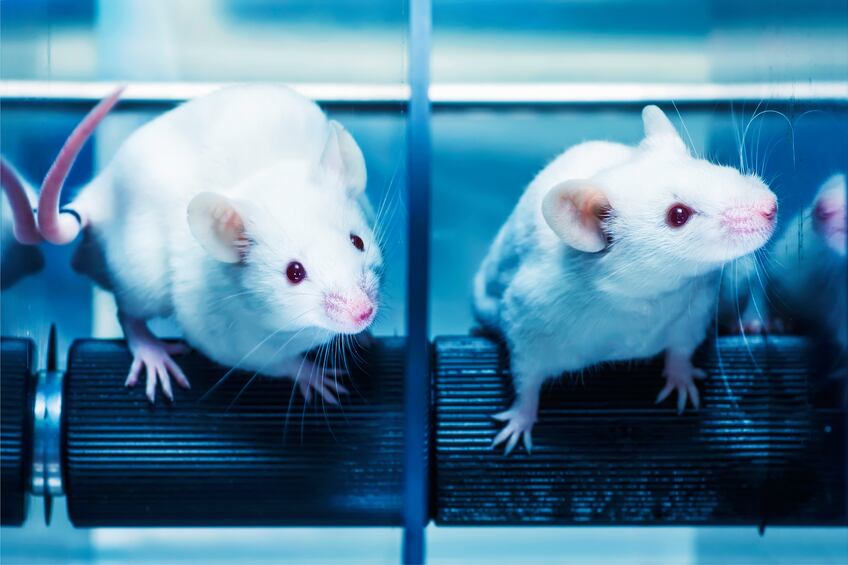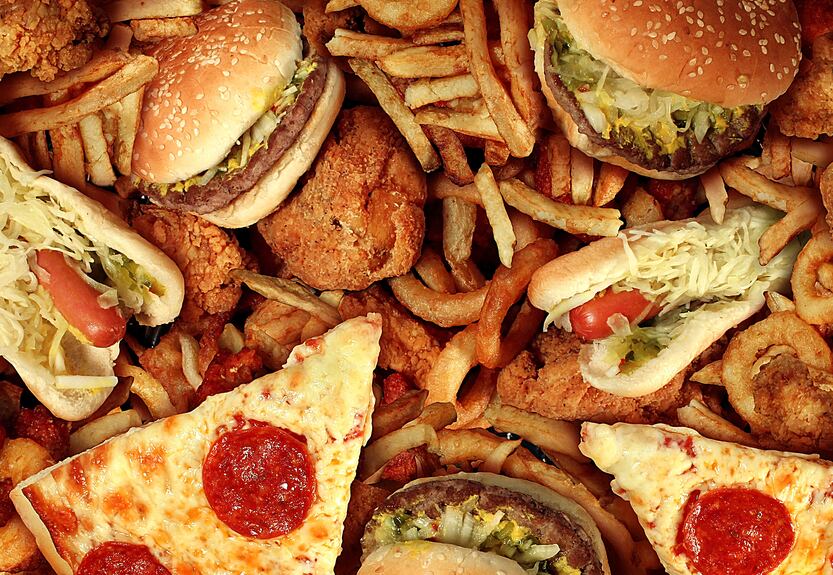The team behind the new study noted that for many people, successful weight loss is followed up rapid ‘rebounding’ weight gain which in some can lead to people gaining even more weight with every diet and weight loss cycle.
Their new findings, reported in Nature, suggest that this so-called yo-yo dieting and ‘recurrent obesity’ could be due to the microbes found in our gut, known as our gut microbiome.
Led by senior authors Dr Eran Elinav and Professor Eran Segal from the Weizmann Institute of Science in Israel, the new mouse data suggests that the gut microbiome plays an ‘unexpectedly important’ role in exacerbated post-dieting weight gain, and that the common phenomenon may in the future be prevented or treated by altering the composition or function of the microbiome.
"We've shown in obese mice that following successful dieting and weight loss, the microbiome retains a 'memory' of previous obesity," said Elinav.
"This persistent microbiome accelerated the regaining of weight when the mice were put back on a high-calorie diet or ate regular food in excessive amounts," Segal explained.
"By conducting a detailed functional analysis of the microbiome, we've developed potential therapeutic approaches to alleviating its impact on weight regain,” he added.
Microbiome mouse study
The Israeli researchers found that after a cycle of gaining and losing weight, all the mice's body systems fully reverted to normal - except the microbiome.

For about six months after losing weight, post-obese mice retained an abnormal ‘obese’ microbiome. In a series of experiments on the mice the team found that the makeup of the obese’ microbiome was a major driver of accelerated post-dieting weight gain.
For example, when the researchers gave the mice a dose of broad-spectrum antibiotics that disrupted and destroyed the microbiome make-up the phenomenon of exaggerated post-diet weight gain was halted, said the authors.
In a further experiment, when intestinal microbes from mice with a history of obesity were introduced into germ-free mice (which carry no microbiome of their own), weight gain was accelerated upon feeding with a high-calorie diet, compared to germ-free mice that had received an implant of intestinal microbes from mice with no history of weight gain.
The authors said that these findings point towards the microbiome playing a pivotal role in controlling weight and metabolic functions, and that the obese microbiome signature that persists even after successful dieting and weight loss “contributes to faster weight regain and metabolic aberrations upon re-exposure to obesity-promoting conditions.”
Computer modelling
Based on their observations, Elinav and Segal and their team developed a computer model using machine-learning algorithm.
This algorithm, which is based on hundreds of individualised microbiome parameters, was found to successfully and accurately predict the rate of weight regain in each mouse.
Furthermore, by combining genomic and metabolic approaches, the team then identified two molecules driving the impact of the microbiome on regaining weight
These molecules - belonging to the flavonoids group – are rapidly degraded by the ‘post-dieting’ microbiome, so that the levels of these molecules in post-dieting mice are significantly lower than those in mice with no history of obesity.
“The microbiome contributes to diminished post-dieting flavonoid levels and reduced energy expenditure,” the authors wrote – noting that under normal circumstances, the two flavonoids promote energy expenditure during fat metabolism.
Flavonoid solution
The authors suggested that the low levels of these flavonoids caused by the remaining obese microbiome signature prevented fat-derived energy release, therefore causing the post-dieting mice to accumulate extra fat when they were returned to a higher-calorie diet.
Using these insights, Elinav and Segal developed new proof-of-concept experiment for the reversal and prevention of recurrent obesity and yo-yo dieting.
In the experiment, they supplemented post-dieting mice with flavonoids added to their drinking water – eliminating the flavonoid depletion caused by the microbiome and, in theory, returning energy expenditure, back to normal levels.

As a result, even on return to a high-calorie diet, the mice did not experience accelerated weight gain.
"We call this approach 'post-biotic' intervention,” commented Segal. “In contrast to probiotics, which introduce helpful microbes into the intestines, we are not introducing the microbes themselves but substances affected by the microbiome, which might prove to be more safe and effective."
"If the results of our mouse studies are found to be applicable to humans, they may help diagnose and treat recurrent obesity, and this, in turn, may help alleviate the obesity epidemic,” said Elinav.
Source: Nature
Published online ahead of print, doi: 10.1038/nature20796
“Persistent microbiome alterations modulate the rate of post-dieting weight regain”
Authors: Christoph A. Thaiss, et al
